The countdown has begun for the 32nd edition of the Cairo International Experimental Theater Festival, scheduled to open on September 1st with a ceremony at the Grand Theater of the Opera House attended by the Minister of Culture, Dr. Ahmed Fouad Hano, the festival president Dr. Sameh Mehran, and theater artists and critics from around the world.
The opening ceremony will feature the kinetic theatrical performance “The Victory of Horus” directed by Walid Aouni. The show is based on a Ptolemaic-era (237 – 57 BC) Pharaonic text inscribed on the walls of the Edfu Temple, considered by researchers as an exceptional theatrical document and the first theatrical text in history. It was translated into English in the early 20th century by British Egyptologist H.W. Fairman and into Arabic by researcher Adel Salama. The play, theatrically adapted by Dr. Mohamed Samir El-Khatib, Professor of Drama and Criticism at Ain Shams University, depicts the mythological struggle between the god Horus “God of the Sky” and his uncle Set “God of Chaos” for the throne of Egypt after the murder of Osiris. The artistic direction is by Walid Aouni with participation from the Modern Dance Theater Troupe at the Egyptian Opera House.
Festival director Dr. Dina Amin announced the completion of all details for the new edition, which will honor 11 personalities who have impacted theater in their countries: Egyptian artists Sabry Fawaz and Hanan Youssef, Dr. Hassan Khalil, writer Bahij Ismail; Cameroonian director Tako Victor; French researcher and critic Patrick Pavese; English artist Norris Roff; Qatari writer and producer Hamad Al-Rumaihi; Lebanese artist Rafiq Ali Ahmed; Kuwaiti artist Mohamed Al-Mansour; and posthumously Iraqi artist Iqbal Naeem for her distinguished career in Iraqi and Arab theater.
Nineteen theatrical productions compete in the festival’s official competition, including two from Egypt: “Ramad” by the Forsan Al-Sharq troupe at the Egyptian Opera House and “Crime and Punishment” by Nihad Saleh Theater at the Academy of Arts. Additionally, the Higher Institute of Dramatic Arts presents “Do You See Me Now” on the festival sidelines.
Selected shows include “Hot Coffee” directed by Ibrahim Khalfan from Bahrain; “Garden of Lovers” by Moaz Ashouri; “Othello and After” by Hammadi Al-Wuhaibi from Tunisia; “The Lantern” by Khaled Amin; “Saleh’s Gum” by Hassan Rajab from the UAE; “The Story May Be Long” by Youssef Al-Harbi; “The Collar” by Fahad Al-Dosari from Saudi Arabia; “Nine O’clock” by Mohamed Youssef Al-Mulla from Qatar; and “Circus” by Jawad Al-Asadi from Iraq.
Seven foreign shows also participate: “Postales Rotas (Broken Postcards)” directed by Estrella Garcia from Germany; two Romanian shows “Moment of Awareness” by Florian Oros and “#NotI” by Cassandra Topologino; Italy’s “Coppelia Project” by Caterina Mocci Sismondi; Armenia’s “Hamlet Machine” by Arthur Mekarian; Greece’s “The Space is Us” by Anastasia Tai; and a joint production from the USA, Zimbabwe, and Colombia titled “Y Recuerda Tichangoshaina .. An Encounter of Cultures” directed by Jonathan Walters.
The official competition jury is chaired by Italian director and writer Salvatore Petroni, with members including Egyptian directors Ahmed Al-Attar and Nasser Abdel Moneim, Saudi Dr. Sami Al-Jam’an, Iraqi Dr. Jabbar Joudi, Greek Dr. Irene Montraki, Italian critic Andrea Burkido, and committee secretary director Adham Said.
Dr. Mohamed Samir El-Khatib, member of the festival’s supreme committee, outlined the intellectual program running from September 2 to 6, 2025, addressing theater issues in the post-globalization era. The program includes a “Giving Back” segment honoring prominent theatrical figures such as Dr. Sami Abdel Hamid from Iraq, Dr. Hassan Al-Munai from Morocco, and Egyptian artist Hanaa Abdel Fattah, concluding with an open session with Professor Patrice Pavese from France.
This year’s publications include eleven new books translating and documenting the latest global theatrical trends, aiming to enrich critical and knowledge movements and provide essential references for theater researchers, students, and practitioners, especially in experimental theater.
As usual, the festival enriches the Egyptian library with 11 books on theater worldwide, including 10 translated works and “Experimentation in Actor Training” by Dr. Medhat Al-Kashef.
The festival announcement sparked debate over some points, such as the choice of Walid Aouni to direct the opening show for the second consecutive year and the negative impact of financial constraints on the quality of shows, which are no longer beneficial for Egyptian theater artists. Festival president Sameh Mehran defended the choice, citing the artistic level achieved last year despite the region’s political situation, and acknowledged financial challenges due to currency devaluation and high demand for major shows worldwide, affirming the festival’s fight for continuity.
Dr. Mohamed Al-Shafie, the festival’s general coordinator, announced that entry to festival shows will not be via electronic booking but through invitations distributed before the shows, with admission on a first-come, first-served basis.
Some expressed reservations about the absence of director Intisar Abdel Fattah from the intellectual forum honoring her late sister Hanaa Abdel Fattah. The festival management confirmed the presence of her daughter, writer Anna Abdel Fattah, and granddaughter Amina, who gifted the festival her graduation project book about her grandfather’s artistic experience.



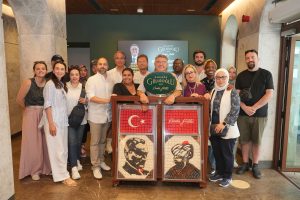
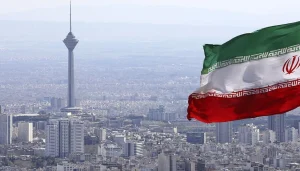

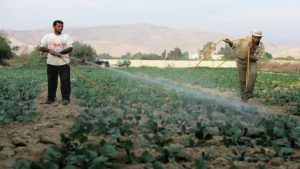



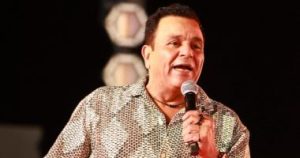

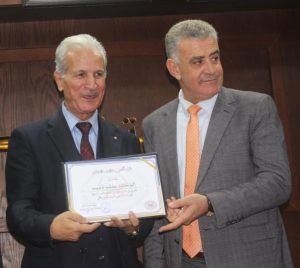
Recommended for you
Talib Al-Rifai Chronicles Kuwaiti Art Heritage in "Doukhi.. Tasaseem Al-Saba"
Exhibition City Completes About 80% of Preparations for the Damascus International Fair Launch
Unified Admission Applications Start Tuesday with 640 Students to be Accepted in Medicine
Egypt Post: We Have Over 10 Million Customers in Savings Accounts and Offer Daily, Monthly, and Annual Returns
His Highness Sheikh Isa bin Salman bin Hamad Al Khalifa Receives the United States Ambassador to the Kingdom of Bahrain
Al-Jaghbeer: The Industrial Sector Leads Economic Growth